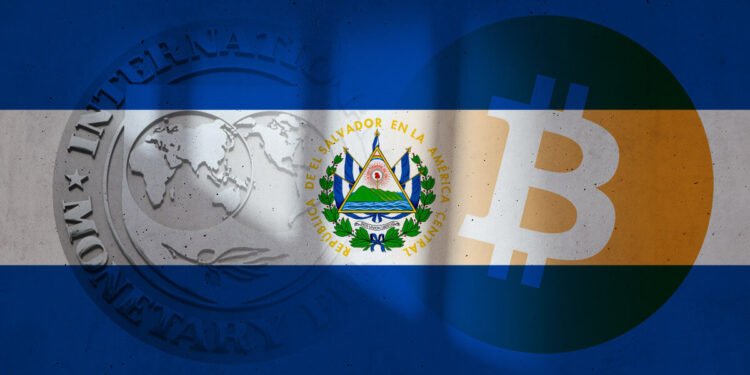IMF Encourages El Salvador to Review Bitcoin Law During Loan Negotiations
Throughout discussions regarding a possible financial assistance program, the International Monetary Fund (IMF) has advised El Salvador to scale down its Bitcoin legislation and bolster regulatory frameworks concerning cryptocurrency. This guidance forms part of broader dialogues revolving around enhancing economic governance and ensuring resilient public finances, as disclosed by Bloomberg News.
During a press briefing on October 3rd, IMF Director of Communications Julie Kozack emphasized the organization’s pivotal concern, stressing the significance of implementing stricter controls within the Bitcoin sphere. “Limiting the scope of the Bitcoin law and reinforcing the regulatory framework and supervision are crucial measures,” she remarked, underlining the financial risks associated with the volatile nature of the cryptocurrency.
El Salvador attracted global attention in 2021 by being the first country to adopt Bitcoin as legal tender, a groundbreaking move that has elicited various responses. Despite the country reporting notable economic progress—including a GDP growth surpassing 10% and notable reductions in crime rates—the IMF remains wary of the complex risks intertwined with Bitcoin integration.
The ongoing negotiations follow El Salvador’s recently proposed 2025 budget, characterized by Kozack as a progressive step towards fortifying the nation’s financial stability. This budget aims to streamline government expenditures and implement reforms geared towards enhanced governance. Notwithstanding noteworthy accomplishments, such as a 95% decrease in the homicide rate and a revival in tourism in 2023, international bodies continue to harbor doubts about the long-term implications of Bitcoin on the country’s economic well-being.
Key proponents of the Bitcoin initiative, including President Nayib Bukele, staunchly defend the government’s cryptocurrency strategy, accentuating the substantial economic benefits witnessed since the adoption of Bitcoin. Mathew Sigel, head of digital assets research at VanEck, criticized the IMF’s position, accusing the organization of “holding El Salvador hostage over Bitcoin.” He highlighted the nation’s achievements in GDP growth, crime mitigation, and tourism expansion as indicators of the positive outcomes of integrating Bitcoin.
Despite the Salvadoran government displaying unwavering commitment to Bitcoin, the IMF has made it clear that any forthcoming financial agreements will necessitate a comprehensive approach to mitigating the associated risks. Consequently, the trajectory of El Salvador’s cryptocurrency policy will remain a crucial focal point in the ongoing talks with the IMF.
To sum up, while the IMF’s counsel underscores the necessity for a more regulated cryptocurrency environment, it also mirrors the tension between innovative economic strategies and international financial caution. The resolution of these negotiations will hold considerable implications for El Salvador’s economic landscape and its stance on digital currency in the future.








